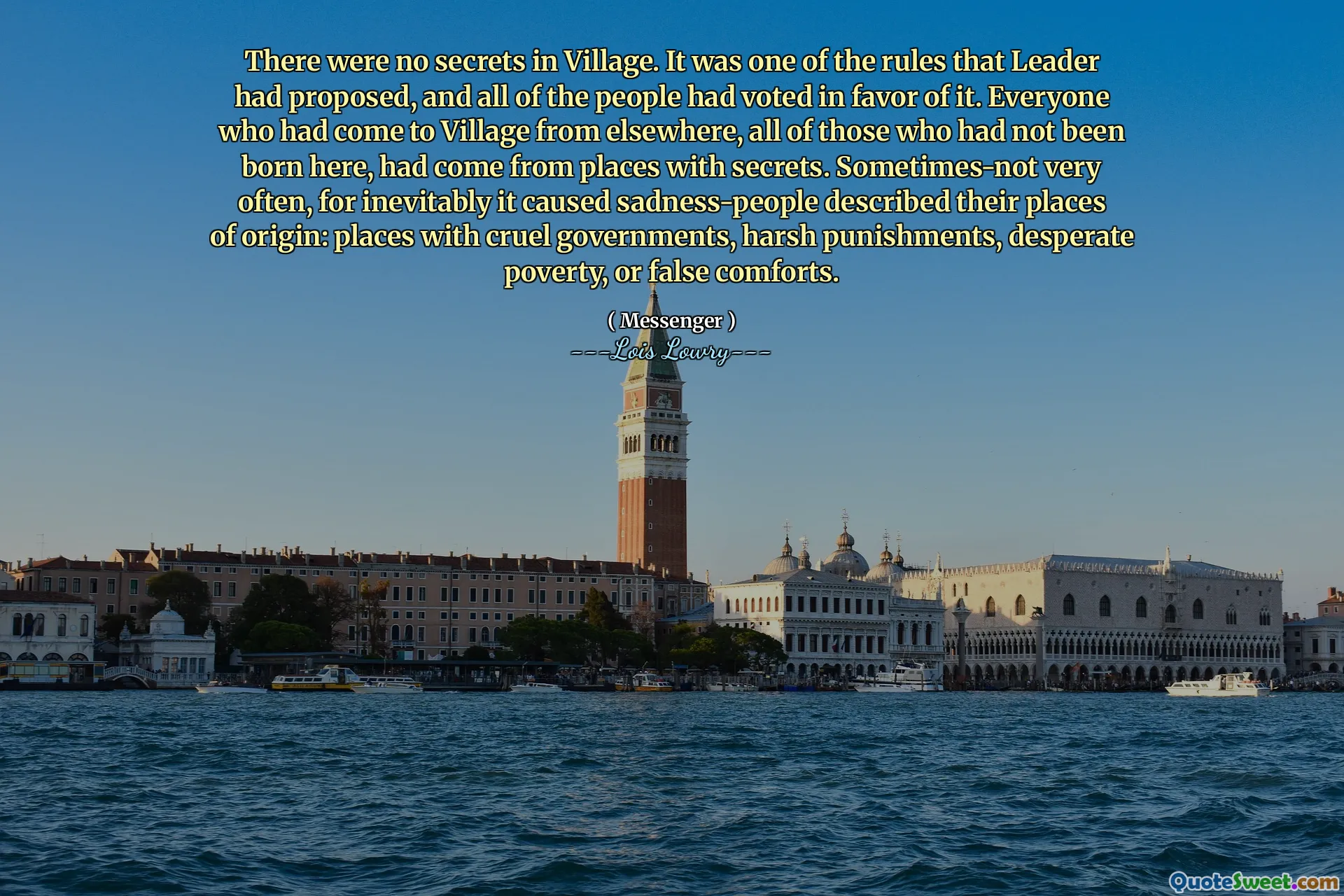
There were no secrets in Village. It was one of the rules that Leader had proposed, and all of the people had voted in favor of it. Everyone who had come to Village from elsewhere, all of those who had not been born here, had come from places with secrets. Sometimes-not very often, for inevitably it caused sadness-people described their places of origin: places with cruel governments, harsh punishments, desperate poverty, or false comforts.
This quote from Lois Lowry's "Messenger" explores a society uniquely bound by transparency and collective trust. The deliberate choice to reject secrets, by communal agreement, stands as a powerful social construct intended to promote safety, unity, and openness within Village. Such a rule, voted upon by its members, reveals a conscious effort to build a community defined by shared knowledge and mutual accountability, sharply contrasting with the secrecy and oppression experienced elsewhere.
The mention that newcomers to Village come from places filled with secrets brings a reflective depth to the narrative. It underscores the notion that secrecy often arises from fear, oppression, or injustice, nurturing sadness and division in those outsiders' pasts. By highlighting the hardships of their former lives—cruel governments, harsh punishments, desperate poverty, and false comforts—the quote illuminates the transformative sanctuary Village represents. It implies a strong valuation of honesty, vulnerability, and community healing borne out of collective experience.
Furthermore, the complexity of the villagers' emotions reveals that even in a community without secrets, the past cannot simply be erased. The sadness that accompanies the tales of origin points out the emotional cost and lingering trauma from former realities. This not only enriches the social fabric of Village but also invites readers to contemplate the delicate balance between transparency as ideal versus the human need for privacy, memory, and emotional processing.
Ultimately, this passage highlights the profound impact that shared values and governance have on rebuilding lives—even in the face of hardship—and raises important questions about the role of secrets in human society. It challenges us to reflect on the nature of freedom, trust, and the mechanisms by which a community strives for peace and understanding.







